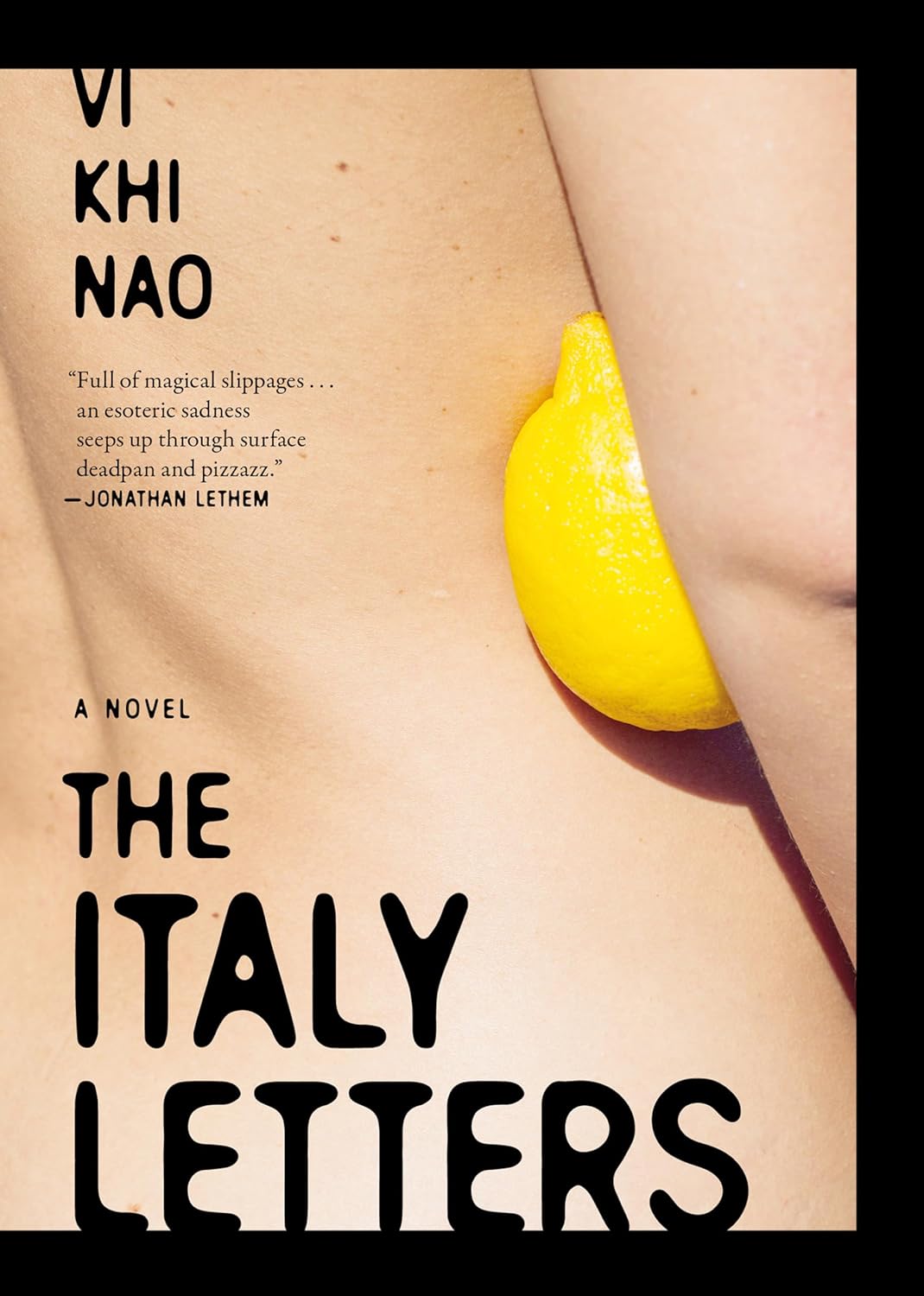Review of The Italy Letters by Vi Khi Nao

The Italy Letters
Vi Khi Nao
Melville House, 2024, 192 pages
$18.99
Reviewed by Lara Mae Simpson
A broke writer living in a small apartment in Las Vegas, caring for her ailing mother while crafting long, emotional letters to her Italian lover in London, who’s married to a man. . . The premise of The Italy Letters sounds like an irresistible, unrequited sapphic love story–but the delivery feels more like wading through a depressive episode, with nothing but moments of beautiful prose to keep you afloat.
The Italy Letters plunges you right into the narrator’s stream of consciousness with no mercy. This wandering narrative style allows Vi Khi Nao to explore a wide range of pertinent, contemporary issues—as well as the narrator’s overarching desire—in a way that reflects the overwhelming nature of our modern-day life. Whether this translates well into an epistolary form, however, is uncertain. The novel is ostensibly a series of letters, but as the present-tense narrative (addressed to ‘you’) shifts between letter-writing and ‘writing’ through back-and-forth texts, the result is disorienting.
Through the fog of the narrator’s turbulent mind, what stands out are Nao’s insightful reflections on relationships and complex societal issues. Money is a key theme in the novel, and Nao shows how poverty makes every part of life near-impossible, from trying to make it as a writer when tickets to writers’ events are extortionate, to always losing teaching jobs at the university to white men. Money also casts a dark cloud over the narrator’s relationships–she struggles to care for her mother, not only because of her mother’s constant suicidal ideation, but also because she gambles all her money away. Her behaviour creates endless stress and guilt for her daughter, who then feels forced to write and publish as much as possible in case it makes any money. Furthermore, the narrator finds herself exploited by her best friend–in exchange for cheap rent, she does all the cooking and cleaning for her friend, is kept at home by her and not allowed to socialise with others, and is made to have uncomfortable sex with her.
When the narrator isn’t making incisive critiques about inequality—on both a societal and personal scale—she spends a lot of time trying to suppress her desire for her lover. The erotics of this novel are also a highlight–as suggested by the book’s cover, depicting a naked body holding a lemon between breast and arm. The narrator is unafraid to write about how her clitoris feels and to describe in-depth her dreams about having forbidden sex with her married lover. There is also a deep romance running through the novel—inherent in the art of writing letters, of course—and the moments of fondness and longing from across countries and time zones are often touching. The experience of loving a woman who loves a man is a very universal lesbian experience.
However, I wouldn’t have been left feeling so empty after reading this book if these lesbian love letters had more of a sense of direction. I love stream-of-consciousness narratives and how they can almost truly represent our chaotic minds, but Nao’s lack of structure did not land for me here. Perhaps the title—The Italy Letters—misled me, as I kept waiting for the lover to be in Italy, but she’s only ever in London, with the narrator in the US. The lover being Italian is only mentioned a handful of times. The only thing that breaks up the narrator’s letters is when she changes location–from Las Vegas to Los Angeles, for example. Perhaps if the novel was moving somewhere solid rather than ambling around like one’s thoughts in a journal, it would be more hard-hitting.
While The Italy Letters has instances of beauty, perceptive commentary, and even comedy, it did not resonate with me overall. However, it is clear that Nao is a highly talented writer, and I look forward to checking out more of her work and seeing where she grows from here.
Lara Mae Simpson (they/she) is a poet, writer, and editor based in London. Their work has been published by The Poetry Society, fourteen poems, Queerlings, and more. They were Literature Editor at STRAND Magazine, and they are currently Poetry Editor at Phi Magazine and part of The Writing Squad. You can see more of their work at www.laramae.com.
"Empowerment comes from ideas."
― Charlene Carruthers
"Your silence will not protect you."
— Tourmaline
"Gender is the poetry each of us makes out of the language we are taught."
— Leila Raven


